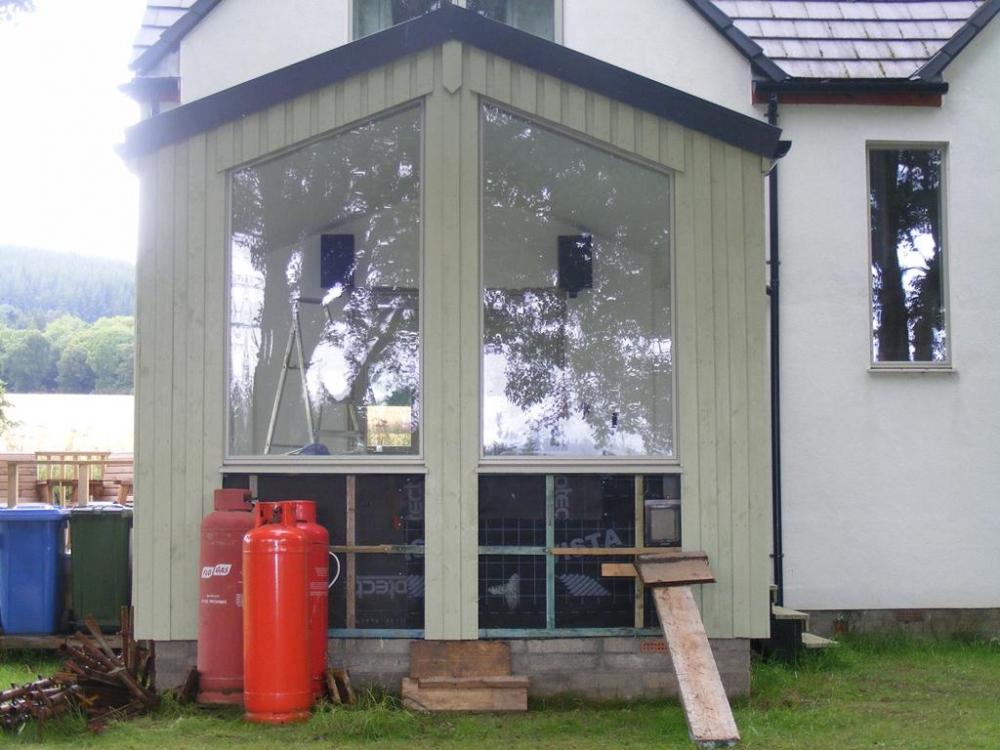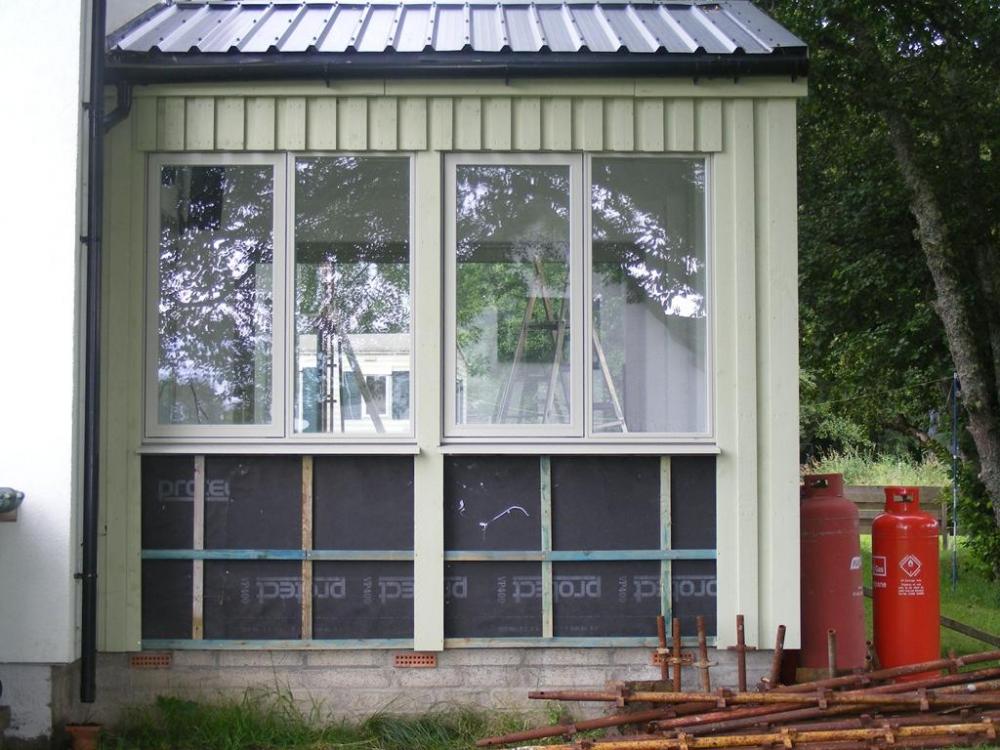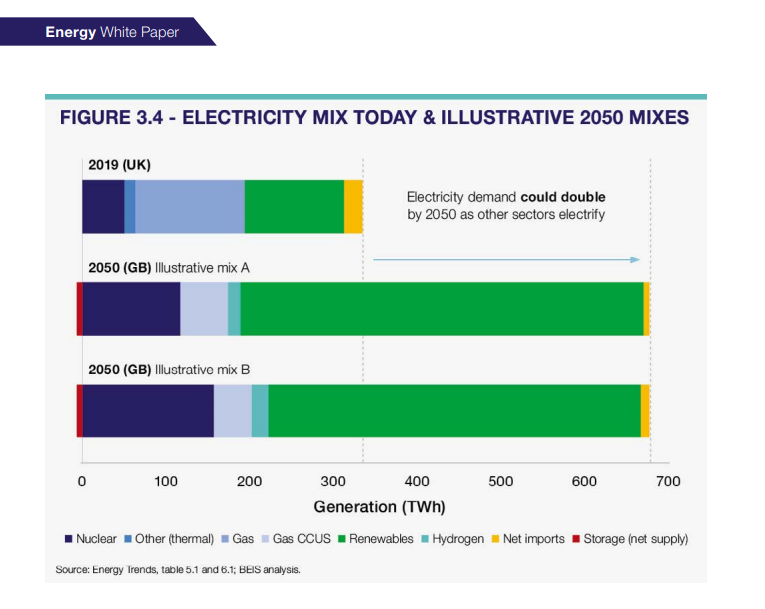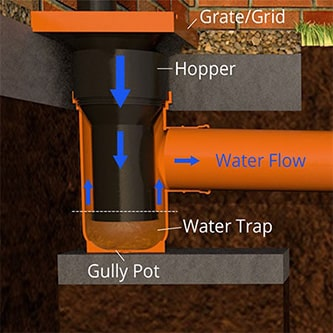Leaderboard
Popular Content
Showing content with the highest reputation on 08/10/21 in all areas
-
The issue is that Great Britain will do and are doing their bit, however, we contribute such a small amount to the problem even if we came up with the ultimate solution, the world would still fall to pieces if left unchecked. We must lean heavily on India, China etc. they must get their house in order. I do my bit by not buying cheaply made tat, particularly from China, I have a real dislike of materials, read earths resources, being use to make poor quality things be it a radio or a house. If the planet gives us resources to make or build something, we owe it to the planet and humankind to use those materials effectively, efficiently and in a way which guarantees longevity. I would, tomorrow, given half the chance ban all throw away type party accessories, balloons, plastic rubbish, solar garden lights sold in supermarkets and DIY stores and frankly just **** we don't need. Here is an example of the problems we face/create - I pick this example because as an argument it holds water and it is relatable and something we can do at home. On Christmas day I have come to expect a dining table likes of that the Queen would sit at, placed on the table is family silverware dating back over a century, plates and bone china over 125 years old, silver candlestick holders, crystal and silver flower holders holding locally sourced seasonal foliage etc. (Holly & pine from the garden, perhaps some Poinsettia from the florist), the table cloths and runners are cotton and silk. The table looks a million pounds but uses things that will be used for decades to come and in some cases these items may have seen over 100 Christmases. Then on the flip side you get the table made up with loads of junk that will get tossed in a bin on Boxing day. This is an issue. We do not need it, we did without it up until 40 odd years ago and all we have done is cheapen our "decorations". When I buy Christmas lights I but the most expensive I can from manufactures I recognise, I am hoping to get a commercial string of warm white LED soon for Christmas, they will cost about £80 but should last 25 years and are serviceable. I have a set of multicoloured green string Christmas lights which are 21 years old and are still used every year. I bought a set of warm white LED's 7 years ago which go on the Christmas tree every year, we used the same pine tree 2 years in a row and planted it out this year as it is nearly 9 foot tall now. The previous collection are in pots or planted. Some may say I am cheap, some may say I am wise and saving the planet. I would agree with both counts! But seriously we can have beautiful thing without waste. We must start looking at things and thinking, do I need that. I saw there was a shortage of paddling pools this year, what happened to all the paddling pools bought last year when there was a shortage too? Well, I will tell you what happened, they are so cheap and "throwaway" that they got left in gardens up and down the country and tossed in the wheelie bin by about November. Why are they so cheap? Charge £25-40 for one and people will maybe think about wasting them. Don't get me started on youths at festivals with tents. All tents, minimum £60 and worth the money - that will hopefully solve that issue. Why are kettles £9 in Argos? I went and bought a Bosch kettle and toaster for our new kitchen, however, only when the old stuff died. The old Russel Hobbs one literally blew up, so I binned it and bought the Bosch one, the toaster didn't make it to the new kitchen and caught fire in the old kitchen burning out the elements, it was very tired, but it gave good service and it was replaced with a Bosch one to match the kettle. I expect long service from these. I hope the earths resources were used wisely. I moved our integrated dishwasher into the new kitchen, it is a Siemens unit, I stripped it out the old kitchen and gave it such a deep clean my wife thought it was new when installed in the new kitchen. I even serviced and checked it out electrically and mechanically, deep cleaning the waste pipe etc. If it goes wrong I will fix it. 2 years ago I replaced the run capacitor on the pump. We waste SO much. Stop the waste and we could burn petrol and diesel till our hearts content!6 points
-
I don't personally see a route to the use of hydrogen for domestic heating, in the "net-zero by 2050" time frame, for anything other than a very small percentage of homes for which electric heating won't be achievable. There isn't a process identified today that can produce net zero hydrogen at anything close to the per kWh cost of either Natural Gas or Electricity. Since the plans to achieve Net-zero by 2050 are taking shape now and legislation is being put in place now, it can't be based on the hope of a scientific break through that opens the door to cheap and plentiful net-zero hydrogen. If and when that break-through does come, then at the point it can be scaled up, maybe it will become a competing option to electric heating. Unfortunately there is no date for when that may happen, but there are significant vested interests in the owners of the natural gas infrastructure that have motivation to talk up the possibility. For new build homes the government needs to make only relatively minor changes to building regulation legislation, for heat pumps to be cost competitive with Natural Gas. It looks like that will be in place for 2025, at which point fossil fuel boilers will be banned for new builds. With the promise from the government that the transition to net-zero domestic heating will be cost neutral in regards day-to-day costs, there will undoubtedly be grants required to improve the energy losses and ready the heating systems of some houses to facilitate the use of a net-zero heating source. For much of the existing housing stock, that will be achieved in the main by legislation, rather than grants. Minimum EPC C certificates will be required for all social and privately owned rental homes by 2028, and by 2035 any home sold will be required to be EPC C or better. I assume by then fossil fuel boilers will not be allowed to be sold. I'd imagine some level of grant will be required for the switch over to a low temp heating system ie. to contribute to the costs of water cylinders and larger radiators and their plumbing. This will devalue the homes that are difficult to improve to the required levels and shift them into the ownership of those least able to afford their improvement. I assume that is when the government has to step in with larger grants to improve the fabric as well as the heating system. My personal experience is that I came to installing an ASHP for my space heating and hot water for reasons other than saving the planet. Quite simply there isn't a gas main with a mile of my entrance, so an ASHP with RHI contribution was significantly better value than the Oil or LPG options I had. I was surprised at how generous the RHI grant was, but it has been tightened since. I shared the common view on this Forum of 4 or 5 years ago, that if Gas was available then it was the cost effective choice. However the mood-music has changed now, or perhaps it's just got louder. My view now is that ASHPs are the right choice for new builds (and significant renovations) even when Gas is available, otherwise within 10-15 years the property will be requiring a significant update or be facing a devaluation. Anyhow, having chosen to go with an ASHP I felt it best to combine it with a low energy loss fabric achieved with U values of 0.10W/m²K to 0.11W/m²K for floor, walls and roof; 0.6W/m²K to 0.8W/m²K for windows and doors and an air tightness targeted at 0.6AH, but to my surprise substantially improved on. I don't know that my experience can really be carried across to owners of existing houses considering moving to an ASHP, but with a heating system designed for the property's energy losses and hot water requirements, it does exactly what it's supposed to, without any fuss and day-to-day running costs that are slightly below an equivalent Natural Gas system.3 points
-
I still have a big question on how the electrical infrastructure will support all the extra load from heat pumps, electric heating and EV car charging when he try to get rid of gas boilers and petrol cars. The supply cable coming into the street ain’t very big and our spinning reserve of generation ain’t big either. Yip houses with good insulation is vital but as stated a lot of the housing stock is around the pre and post war era and can only be improved so far. What do we do at night when the wind ain’t blowing and so there is no solar PV and we have mined all the limited supply of Lithium for our batteries. The interconnectors to Europe are working at full tilt and importing leccy possibly generated by coal anyway. Can’t help thinking there is a lot of green wash getting painted about by politicians trying to vote score without thinking things through. Lets get our housing stock sorted, properly assess the environmental impact of people like me that will be encouraged/forced into scrapping a perfectly good ICE car for a Lithium battery car, encourage less babies by stopping family allowance at two kids. I can go on but I don’t want to sidetrack us too much.2 points
-
It's the classic boiling frog scenario. Once the discomfort is evident to the masses they will demand action but will it then be too late - or take too long to have any impact? I skimmed the Daily Mail in the shop today - saw a glimmer of hope in their position of 'it may be expensive now but will be much more expensive if we do nothing' so maybe that message will start to resonate. The other challenge we face is that government policy making, globally, is inherently short term and selfish - the fundamental calculation is always let's do what is popular & avoid what is unpopular so we can stay in power. Climate aside we see this with education, healthcare, long term social care etc, etc.2 points
-
David Attenborough has been saying this for years, I did think perhaps Coronavirus was the Gaia principle protecting the planet?2 points
-
If you extend the warrant you will stay on the old regs (I am still working to 2013 regs) It is ig you let it lapse and then re apply they could enforce you adopt anything new.2 points
-
Maybe you should throw a garden party and get to know your neighbours, they might be very nice people. My neighbours are lovely people. The one on the left knows everyone and will do you a good turn whenever he can. I recently asked him where is could hire a 3 tonne centre steering dumper, 20 minutes later he turned up with one, a weeks hire cost me six bottles of wine of Aldi’s finest wine.2 points
-
Many thanks all - managed to core drill out for the 40mm today and feed it into a temporary run, so I'll get a roddable bottle gully and see how I get on with installing it! Looking at a rectangular hopper so I get a section to feed the 40mm into as well as a removable grid.1 point
-
1 point
-
At present a population cut is not the entire answer. A 50% cut in population depends on which 50% you cut. Cut the poorest 50% of the worlds population and you'll achieve near bugger all. Cut the richest 50% (I.e. us) and you're probably onto a winner. In practice, climate change or some other malevolent force will probably do this for us and it's often less well developed areas that suffer. Population is a red herring imho.1 point
-
Warming up nicely - pardon the pun! It seems we have so many different views, very few of which are socially or economically acceptable as things stand so no cohesive leadership on the problem. India has already said it will do nothing about the amount of coal it burns, the clean energy growth will just about keep up with economic growth. The Chinese have broadly said the same thing. However @Carrerahilltake a look at your Bosch kettle and see where it was made - perhaps it is this one: https://www.productfrom.com/product/669843-bosch-twk6004n-electric-kettle but to save looking it up it is Hong Kong! We searched high and low for a UK made kettle last year and did not find one then a European one and failed again, there are a few made in the USA and very many designed in the UK! Perhaps we have to live, for now, with being good at design and awful at manufacturing shipping a few digits in the form of drawings does have an environmental impact but nothing like as much as bringing the putative kettle back from the other side of the world in a big ship burning very nasty oil - nobody is thinking full cost. Either way we miss the point it is all about waste in the end - we needed a new kettle cos the old one failed - irreparable. @Marvin you are correct its all about human factors and the way we choose is all about how we are led, whatever the tinge of the regime. Root cause - poor leadership perhaps.1 point
-
+1 We ran 110mm under the floor to the sink area but I think it's too late for the OP to do that.1 point
-
1 point
-
1 point
-
1 point
-
Just a general point when asking for buildhubbers’ experiences of ASHPs - I think it would be fair to say that those who are part of this forum will by and large be building homes much more suitable to heat pumps as they are much more concerned about build quality/insulation/air tightness. The real problem is new builds by big developers that install heat pumps without the build quality as heat pump performance will suffer. So be sure to try and get real world experiences from those with substandard new builds as well as here.1 point
-
There is a problem if you rapidly replace homes, cars and consumer goods. Called 'the carbon burp'. If you put a lot of CO2 into the atmosphere in a short time, then you get more rapid warming. And you are still left with most of the CO2 in the atmosphere for a number of decades. Wen it comes to improved housing, it is up to industry to think up ways to make thermal improvements via renovation (which may be major and involve the occupants moving out). It is another issue if grants and tax reliefs should be available for this, or just charge more for energy in the first place. My personal experience is that it is not hard, and certainly not expensive, to halve energy usage via better management. My biggest energy saving 'device, now costs half what it did 20 years ago, and I use it most days. It is a washing line from Poundland, for a £1.1 point
-
Does not have to be low energy, energy is not the enermy. Fatih Birol interview: Using energy isn’t evil – creating emissions is People think using more energy is a bad thing, says International Energy Agency chief Fatih Birol – but as long as we can make it cleanly, it needn’t be ENVIRONMENT 4 August 2021 By Adam Vaughan Adam Vaughan: How do we need to change the world’s energy systems to reach net-zero emissions by 2050? Fatih Birol: Between now and 2030, we have to make the most of the existing clean energy technologies: solar, wind, electric cars, energy efficiency. But this alone is not enough. To use renewables at a maximum level, in an economically efficient way, requires more than having solar photovoltaic panels and windmills. We need strong and distributed grids and storage – in batteries, hydrogen and hydropower. I think there is not enough attention on the second part. It is a major handicap of our push for renewable energies. Energy special How we can transform our energy system to achieve net-zero emissions How to understand world energy use – in 10 graphs How the fossil fuel era ends – and four possibilities for what follows Some 50 per cent of the reductions to reach net zero in 2050 will need to come from technologies not on the market today. We have a very short period to innovate those technologies, such as hydrogen, batteries and carbon capture, utilisation and storage. We will also need clean-energy technologies in the industrial sector, from cement to steel. [Use of] unabated coal, oil and gas will need to be extremely minimal. This is a major point. A total transformation of the energy system is needed, a Herculean task. How far off-track are we? We are not only off-track, the gap is widening and widening. With the rebound of the [global] economy, we expect an increase of about 1.5 billion tonnes of carbon dioxide emissions this year, which would be the second largest increase in history. Most [emissions reduction] pledges are lacking what specific energy policies will be put in place, and how those policies will be financed. It will be much more difficult and much more costly if we do not start to abate emissions as soon as possible. For me, the biggest challenge is coal in Asia. China, India and Indonesia are altogether almost 45 per cent of the global population, and more than 60 per cent of their electricity comes from coal. How to retire those coal plants will be key. What progress has there been on ending coal? It’s going in the wrong direction. Even in the US, coal consumption is growing. Of course, this will change in the months and years to come. Germany, for example, has decided to phase out its coal plants by 2038. But the share of coal there is very small compared to those other countries where coal is a key source of employment. So the challenge is big. For me, coal, and the coal plants in Asia, are the nerve centre of the entire climate change debate. It is simple arithmetic. If we’re still burning coal, our chances to reach our climate goals will be more and more difficult, if at all attainable. What did you think of the promises made at US President Joe Biden’s climate summit earlier in the year? I have mixed feelings. I am very happy that some of the largest economies of the world, such as the US, China, Japan and Canada, came up with ambitious targets, and many governments around the world gave support to the fight against climate change. But I see the rhetoric and data are going in two different directions. I would very much like to see a detailed plan, especially between now and 2030, of how they are going to employ energy policies to reach targets and make those pledges credible. How realistic is the promise by China’s president, Xi Jinping, to see coal use there peak by 2025? It is one of the most important statements from the Biden summit, and I find it very encouraging. When I look at the challenges China has faced and has overcome on energy, I hope it can give the world a good outcome. Seven out of 10 solar panels are financed or manufactured by Chinese companies. China is number one in wind and hydropower. I hope, once again, China can achieve the target President Xi has highlighted. What role do you see oil companies playing as the energy sector decarbonises? No oil company will be unaffected by the energy transition, whether they are part of it, against it or neutral. In 2019, when we looked at international oil companies’ investments, the share of clean energy was about 1 per cent. As of today, this share has increased significantly, to about 5 per cent. This is a strong increase, but still far from enough to help the clean energy transition. The IEA forecasts the world will use about 97 million barrels of oil per day in 2021. What does reducing that number mean for big oil-producing nations? There are huge implications for countries who depend on oil and gas revenues. The amount of oil the world will need may go down to 24 million barrels of oil per day [by 2050]. The price of oil will go down substantially as well. The only way out for those countries is to diversify their economies as soon as possible. There has been a lot of hype about hydrogen as an alternative fuel in the past year. Is this hype cycle different to previous ones? I’ve been following the energy markets for many years. Whatever technologies are on the table, there are always people who like it and don’t like it. For the first time, I see a technology that everybody likes. South, north, producer, consumer – everyone loves hydrogen. What I would like to see is at least two things. One, clear strategies and financing secured for those strategies. And second, regulation. In both cases, there is a discrepancy between the hype on hydrogen and what is happening in real life. What are your hopes and messages for the COP26 climate summit this November? Energy is good, but emissions are bad. Energy is making our life better, more comfortable, more productive. If I had to choose two things [at COP26], one is credible energy policies to halve global emissions between now and 2030. The second is financing mechanisms put in place to accelerate the clean energy transitions in the emerging world. Why the distinction between energy and emissions? Do you worry fossil fuels are tarnishing the industry’s image? People think energy is a troublemaker. The emissions are the troublemaker. You can have a lot of energy, clean energy, which is good for all of us. Learn how to live a greener life Find out what sustainable living looks like with the latest New Scientist course academy.newscientist.com PROFILE Fatih Birol is executive director of the International Energy Agency, an intergovernmental organisation formed to promote energy security after the oil crisis of 1973 to 1974, when an embargo by major oil-producing nations caused fuel shortages. In recent years, the IEA has increasingly focused on how the world’s energy systems can transition to meet international climate goals.1 point
-
So all rich? So all have the same. So all average??? No chance of success with that idea with humans. @Marvin Rich enough to feel secure. It's a soundbite, but there is a correlation between growing wealth and falling fertility, especially in developing countries. Check the numbers for say South Korea after WW2, Bangladesh in the last 20-25 years, or many others. https://en.wikipedia.org/wiki/List_of_sovereign_states_and_dependencies_by_total_fertility_rate https://en.wikipedia.org/wiki/List_of_countries_by_past_fertility_rate Which makes it about development, and in particular low energy development. Given that it is some advanced countries who are demonstrating creating increasingly more income per unit of emissions, that suggests that the different demands can perhaps be met together. Ferdinand1 point
-
Some creative thinking will be required. For some it will be wall hung ASHP's, in the same way A/C units are installed on flats in warmer countries. For others, where freehold ownership allows and the roof structure is capable, a district heating solution piping the hot water down the outside of the building and into each unit. Where there isn't a solution, then perhaps locally supplied net-zero hydrogen or direct electric heating, but these would require some long term cost support if the Government are true to their word that the transition will be cost neutral for day-to-day costs. Are there many homes that the financial cost of upgrading to an EPC C is equal to a significant proportion of the property value? By the Government's calculation the upgrade from the average EPC G to an EPC C will save £700 per year (on average) in heating costs. Since the Government have only promised a cost-neutral transition, I would assume that if a grant has been used to achieve it, that saving will, by some mechanism, be used to contribute to the upgrade, for the next "many" years. I feel that is one of the easier issues to resolve. It's certainly recognised that the electricity production will need to more than double by 2050, so I'd assume there's been a cost associated to it. From the "Powering our Net Zero Future" white paper: The plan appears to be sufficient RE (when the wind is blowing and sun is shining) for 100% of required electricity, and a mix of Nuclear, Gas with CCUS and storage for when it's not. When there is a surplus of Nuclear then it will be used for green or blue hydrogen, it's not clear which. And the Building Regs changes for 2022 almost get there, but I fear the version of a "Low Temp" heating system being dictated isn't quite low temp enough to force UFH, but at least it forces Water Cylinders to be included.1 point
-
Agreed 100%. Reduce the population and all the earths issues are solved. Covid was the earths way of trying that - it failed because nature didn't expect Astrazeneca and Pfizer to come along! Something will get us though. There should be no social support for any more than 2 children. Give them the cash, they will have the kids without a care in the world! Those of us who pay our way in life will self regulate because more kids = more cash! The real population problem countries will need another strategy mind you. China actually had the right idea, they just didn't make it work very well in their commie way. I am not controversial, I just say it like it is.1 point
-
I dislike external pipes on houses and on my new build we put a gulley outside but the gulley had sockets for 50mm pipe below ground level so I installed a 50mm pipe from under the sink, down into the floor, then out through the wall below ground level onto the gulley socket.1 point
-
Right enough, look at India, while not brilliant there is significant levels of healthcare compared to other countries and they may have lost 4 million people to it depending on who you believe.1 point
-
The quickest way to achieve that is to make everyone rich, which minimises the need for "children for security".1 point
-
Depends on what country we are talking about. Remove 1,000 people from USA and I think you're removing 18,420 T per year of C02. India would be 1,960. The UK would be 5,620. We don't fly or commute very much and have a pretty efficient house. I make a bit effort not to eat food with high air miles and most of the meat we eat is wild. Probably the biggest thing we have done is not having children and that was not for any ecological reason (just can't be arsed with kids). In fact most of our choices are for lifestyle rather than ecological but I suspect that even if everyone in the UK lived like us it would make little difference to climate change.1 point
-
I concur with @ProDave above, rather than question your intentions re your book I will tell you of our experience, I have recently installed (myself) an ASHP in my new build. The build is passive esk, I.e. following their principles but no certification. Although a traditional build with brick and block insulation levels are high, airtightness also is fairly high and the small 5KW heat pump is all that is required. I do have to admit we installed a wood burning stove ? but this is to burn our own harvested wood and used rarely, we do live in a very rural area and this stuff would have gone on a bonfire if not used in the stove ?♂️. I decided against PV as FIT was withdrawn before our completion date. I run a diesel car doing less than average miles but believe scrapping it to buy an EV is a waste, but I am sure EV will be my next car.1 point
-
Knock 'em all down and start again Would love to see the government contract documents for that. But seriously, we do it all the time in utilities. "Condition Assessments" are standard and there is always a point where an asset is no longer worth upkeeping and it's better to demolish and replace with something new. That's because we're looking at 50yr timeframes. I think somebody needs to take the same look at our hosing stock and make the same calls. I doubt any politician would think that far in to the future - short term votes are all that matter to them.1 point
-
Best advice is to report it to insurers and say that you are monitoring it for two years - photos will do measuring better1 point
-
Personally I think you've hit the nail on the head. People don't contemplate the amout of children they have (eith a ripple effect) with older people living longer - we all need/want more and more with the mass population and the human race is taking every last thing this planet has1 point
-
Until we stop burning wood at Drax, I have no faith in anyone who is planning our "carbon neutral" generation. As for Nuclear, the present ones under construction or planning seem a bureaucratic, late, over cost money pit under the control of foreign countries. A GREAT embarrassment for a nation that pioneered nuclear power and one upon a time we could design and build our own.1 point
-
I posted a similar point recently Government's are relying on technology that doesn’t yet exist Putting HPs in homes with poor airtightness is pointless Most of these cleaner heating systems will be power by plants still using coal or gas1 point
-
That shower fits to exposed pipes on a standard spacing. You'd remove the whole mixer bar and replace it.1 point
-
There has been nothing that surprised, or depressed, me in the latest report. I think there is so much going on behind the scenes that we forget that it can be done. Many developing areas are skipping the grid infrastructure phase and going for distributed RE generation. This is the best thing to do. We can cheaply and easily lift million, if not billions, out of fuel scarcity for very little cash, and certainly a lot less planning (remember we, in the UK cannot build the cheapest RE generation on our land). It is us old legacy industrialised countries that seem slow. The big question is what do we want to preserve, is it our existing lifestyles, cottages by the sea, Rangerovers and BMWs. Or do we want to help create a more equitable world. Sadly I think we voted to preserve what we think we deserve (in the UK). I could copy and past this weeks New Scientist, which is all about RE. OR YOU CAN GO OUT AND BUY A COPY.1 point
-
This might be useful to some people, the “Reverse / inverted” pattern is also know as “counterflow” serpentine in software like LoopCad.1 point
-
1 point
-
It is an extremely depressing situation Mike, on the one hand government ministers pay lip service to taking action to prevent further climate change, on the other they give the go-ahead to a new oil drilling project off Shetland that will create huge carbon emissions for the next 25 years. Business and energy minister Kwasi Karteng on TV this morning professed that they would offset the damage this new development would do by using carbon capture technology. Let us remind ourselves that this technology does not even exist right now and many sceptics believe it will never be an option! I think we all have to do our bit and put pressure on the powers that be to act and show them that it is in their best interests to act. I think it may be too late but we can`t give up, we have nowhere else to run have we?1 point
-
@Thorfun. I'm told that Telsa Gateway also leverages vector summation when charging. Yes, I have a 3 phase supply and a single powerwall on L1, let say I’m generating 9kw of solar (so 3kw per phase) the powerwall will charge at 5kw.1 point
-
Roddable gully for me. Osma do a good one where you will still be able to pull trap out if using solvent weld. Otherwise use push fit on the 40mm. Doesn't matter about changing directions if your going vertical down into the gully. The water isn't going to remember what direction is was going before dropping.1 point
-
1 point
-
Me too. Make a gully, add a garden tap above (fed from the sink supply) and disaster turns into success1 point
-
See the pics (Day1: to Day 4:) in the blog of our build in Cornwall. Wife and I did this with half a day assistance on Day 1 from one of the tech team on site. It's straightforward once you get going1 point
-
1 point
-
1 point
-
Resurecting this old thread. Are all your problems with Octopus Go sorted now? You mention an APP? I am considering Octopus GO but I am a dinosaur I DON'T want an app. I am happy to manage my account on a web browser on a proper computer. Is having an app on your phone to interface with it compulsory ow will old stuck in the mud people like me still be able to use the web interface?0 points
-
That family was the perfect customer : super polite, thoughtful, appreciative, perceptive.... ' Ahhh, well its not just the window cleaning we appreciate, with you we don't have to worry about security...' That was true, as was the following exchange during the post Christmas clean ... with a wink to her husband, a RN frigate captain, I said, "I see maam, we've both been passed over in the New Years Honors List ... again..." " Nay, nort quite, Ian, nort quite"... In with both feet again eh lad? I could have checked the list I suppose. Without prompting Mrs X would just have continued smiling quietly. "A GCMG for my husband ... better than my OBE by some margin, what? " I beamed , delighted but also puzzled; what the Hell was a GCMG? Reading my reaction, "God Calls Me God", she said helpfully. "But His authority does not extend to this hice, I can assure you. " Husband and I both winced and got on with it.0 points
-
0 points
-
0 points
-
My overwhelming thoughts are the sheer enormity of the task, and I don't believe we have a government capable and competent to make the changes needed. Housing stock. Just WHO, how and when are the UK's mostly poor houses going to get updated? Who is going to pay etc? Transport. I don't believe EV's are the answer unless electricity generation gets significantly greener and more of it, I just don't see that happening quick enough. And other nations that continue to burn coal in power stations, unless they stop the rest of us are p*****g in the wind.0 points





.jpg.c21f3ac78c9b7efd90cbdcb312744dc5.thumb.jpg.7adcad4c0e384f5ecd7d56b0618df6e5.jpg)












